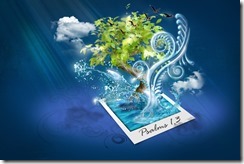Where To Turn To In The Psalms
PRAYING WITH THE PSALMS
 For centuries, the psalms have been a place for followers of Jesus to turn to. From time to time, we can look to the psalms to help us pray. No matter the season or concerns, you will find direction through the psalms. For centuries the Holy Spirit has led God’s people to them and through them and this will continue .
For centuries, the psalms have been a place for followers of Jesus to turn to. From time to time, we can look to the psalms to help us pray. No matter the season or concerns, you will find direction through the psalms. For centuries the Holy Spirit has led God’s people to them and through them and this will continue .
Here is a list I put together from a few different resources for the Sunnyside Wesleyan Church. Click here for a pdf version.
| TOPIC | PSALM |
| God the Creator | 8, 19, 33, 65, 111, 104, 145, 147 |
| God the Redeemer | 15, 33, 102, 103, 111, 113, 114, 126, 130, 138 |
| God’s Sovereignty | 24, 46, 47, 72, 89, 93, 96, 97, 98, 99, 110, 146, 145 |
| Feeling Attack | 25:16-21, 30:1-5; 37; 57;109:21-31, 126, 143 |
| Feeling Far From God | 23, 24, 42:5-11; 139:1-18 |
| God Our Refuge | 4, 17, 20, 37, 46, 54, 61, 71, 91, 103, 121, 146 |
| Sickness/Suffering | 31:9-10, 109:21-31, 119:153-160, 121 |
| Temptation | 19:21-14, 141 |
| Worry | 25, 112, 143 |
| Trust in God | 27, 31, 37:3-6, 46, 57, 62, 63, 71, 73,
77,91,118,121,123,124,125,143,146 |
| Times of Trouble | 3, 11, 12, 13, 18, 20, 30, 40, 46,
49, 57, 62, 63, 80, 85, 86, 90, 107, 118, 144, 146 |
| Seasons in Life | 39, 49, 90, 102 |
| Repenting | 6, 32, 38,5 1, 102, 130, 143 |
| Worship | 5, 26, 43, 63, 65, 66, 67, 84, 96, 100, 102,
116, 122, 138 |
| Divine Guidance | 15, 23, 25, 43, 73:23-26, 80, 85,
111, 112 |
| Insecurity | 73:21-26, 108:1-5 |
| Hope | 225:21, 31:23-24 |
| Morning | 3, 5, 20, 63, 90, 143 |
| Evening | 4, 13, 16, 17, 31, 77, 103, 116, 121, 139, 146 |
| Thanksgiving | 8, 15, 18, 19, 27, 29, 30, 34, 100, 118,
145, 150 |
| Peace | 29, 46, 76, 85, 98, 100, 124, 125, 126 |
| God’s Glory | 18, 29, 99, 36, 46, 148, 150 |
| The Incarnation | 2, 8, 85, 89, 102, 110, 111, 113, 132 |
Why Read the Psalms?
 Reading the Psalms should be an essential part of your journey with Jesus.
Reading the Psalms should be an essential part of your journey with Jesus.
Music and scent have this power to take us to places from our past. They help us engage the present, and when we bring those together, can give hope for the future. N.T. Wright shares that the Book of Psalms are a place where space, time and matter come together. They allow us to draw upon God in the past for the present, and carry us forward into the future. Historically, the Psalms have played a huge role in the life of God’s people. They are humanity seeking God, full of emotion and every kind of human experience.
The Psalms are poems, prayers, and songs of a community’s faith journey.
Bob Deffinbaugh has some good basic information here on What is a Psalm?
In his Reflection on the Psalms, C.S. Lewis shares the following:
“What must be said, however, is that the Psalms are poems, and poems intended to be sung: not doctrinal treatises, nor even sermons.” (Lewis, C S (2014-06-25). Reflections on Psalms (Kindle Locations 25-26). . Kindle Edition. )
“Most emphatically the Psalms must be read as poems; as lyrics, with all the licences and all the formalities, the hyperboles, the emotional rather than logical connections, which are proper to lyric poetry. They must be read as poems if they are to be understood; no less than French must be read as French or English as English. Otherwise we shall miss what is in them and think we see what is not.” (Lewis, C S (2014-06-25). Reflections on Psalms (Kindle Locations 29-32). . Kindle Edition.)
Understanding this can help us engage the Psalms in our journey with Jesus.
Here are three reasons to read the Psalms:
1. Every human situation and emotion is found in the psalms.
Found in these poems is almost every human emotion, and many situations we can relate to. They are raw emotion, a person seeking God in the midst of life. In return, this helps us along the journey of life.
We have all been there, with no words to say before God, and yet our bodies hurt and scream out to God. The Psalms can help us to express ourselves to God.
2. They are a conduit to live at a crossroads, where God space and our space come together.
N.T. Wright drew me in this direction. They can become a place where we pull the faithfulness of God from the past, to the present, leading to hope for the future.
3. Jesus used them.
The Psalms were a prayer book for the early Jesus followers, and for Jesus himself. There is good historical support for their guidance in the life of the church.
There are perhaps more reasons, but let me encourage you to engage the Psalms for the first time or afresh. Maybe one chapter added onto your regular reading or a fast overview read through.
N.T. Wright shares; “The Psalms contain unique poetry expressing the biblical faith in God as Creator, Redeemer, judge, lover, friend, adversary—the whole lot. There is nothing like them. The Psalms go right to the depths of the human emotions—they don’t just skate along the top. They explore what the great promises of God mean and what we do when those promises do not seem to be coming true.”. .
Engage the psalms and let them guide you in seeking God.
How do you use the Psalms in your journey with Jesus?
Bible Reading Tip #1 A Reflective Reading of the Bible
 A hands-on-approach to developing the discipline of engaging the bible to guide your life.
A hands-on-approach to developing the discipline of engaging the bible to guide your life.
One individual shared that when he heard I was teaching on something called “Lectio Divina,” he thought perhaps he would not come. It sounded hard and not very practical. He figured it was Latin and assumed he would lack something. After the teaching, he shared “I can do this, this is simple.”
An old discipline called “Lectio Divine” is a good rhythm of reading the bible. Its basic form involves meditating upon a short section of scripture.
The basic method is simple and involves reading through the text a number of times with short bursts of silent reflection. We set aside the analysis side of life, and come with hope to listen to God’s word for our lives This is not to say analysis will not help, but this practise is more about reflection. Often I find myself combining the two without thinking much about it.
Looking for help with more of an analysis method? Check out this post.
The readings can be done aloud or silently. I recommend a combination.
As you read, you are looking at what captures your attention, what words or phrases strike you. How does the passage touch your story? What is it calling you to do? During this time, prayer is part of the meditation.
Lectio Divine can be done in a group or on your own, individually. To some extent, I use this format in my weekly reading of scripture. The assumption is that God has something to share with us through the regular discipline of engaging the bible.
A path to follow for Lectio Divine:
1. Find a quiet space and time.
2. Bring up the passage and take a few deep breaths.
3. Read aloud the passage. There is no need to rush here.
4. Silence.
5. Read the passage again and make note of words, phrases, or sentences that stick out. Perhaps write them in your notebook or journal. Do not be worried about the why.
6. Silence and prayer. Ask the Holy Spirit to reveal to you why these words caught your attention, what is it he wants you to know?
7. Read the passage again
8. Spend some time in prayer
What might God be saying to you this week?
Four Tips to Help You Read the Bible
 The most powerful “catalyst” for your spiritual growth, as a follower of Jesus, is found in the rhythm of bible reflection and study. My hope in this series is to give you a hands-on-approach to developing the discipline of engaging the bible to guide your life.
The most powerful “catalyst” for your spiritual growth, as a follower of Jesus, is found in the rhythm of bible reflection and study. My hope in this series is to give you a hands-on-approach to developing the discipline of engaging the bible to guide your life.
When I worked for Macdonald’s, right before the rushes of people would come, preparation would always take place. You would make sure there was enough ketchup, etc. out and on the tables. You would pull buns out of the freezer, and meat all ready to go for the mealtime rush. The idea was have everything you needed ready to go to make serving lunch go smoothly.
Preparation is important in life. Preparation can help make a lot of things go smoother. You still have to be willing to adjust your life, but it helps.
The same applies in the discipline of engaging the bible to guide your life.
Here are four items to have in your backpack as you engage the scriptures in your daily journey.
1. Schedule your time.
For many of us we are driven by the calendar and clock. There are pros and cons to this, but pull out the calendar and slot in a time. It is like scheduling time for going to the gym or out with friends. This many seem ridged, but it will help you to develop a rhythm.
A few things to note:
What works for your schedule? It will be different than others, and be aware of the season of life you are in. Do not be worried if the time slot changes a bit. If free time opens up, I will pick up my bible to meditate and pray. Just because it is not the scheduled time does not mean you have to wait. Embrace those times as they come, even if it is not the scheduled time.
Try this goal: In any given week try to have 1-2 times of significant engagement of the scriptures. Already there? Great, then look at how you can increase it.
2. Keep a notebook.
Writing helps our thoughts with the learning process. Journaling can bring clarity to your thoughts. Things to write about:
- What is being said in the text?
- What do you need to hear from the text?
- What questions do you have?
- The Psalms can be used as a path for prayers, you could write out prayers.
Check out the first post in this series for a study process that you could combine with your journal/notebook.
Nancy Leigh DeMoss shares some helpful thoughts on writing as you read your bible.
3. Get helpful tools
Having reference tools will be useful, such as a good study bible and commentaries. Finding trusted online sites is needed and even building a library, or knowing someone who has a larger library can also be helpful.
A few websites I recommend to people to help in studying the scriptures:
www.bible.org
www.biblegateway.org
www.studylight.org
www.ccel.org
4. Spend time in prayer.
As you start, it is good to close your eyes, take a deep breath and invite Jesus’ and the Spirit’s leading. As you read through do not be afraid to stop and pray. It is always good to wrap up in prayer as well.
As you develop the discipline of engaging God’s word, start small, keep it small. Spend time reflecting upon what you are reading throughout the week as you ride the bus, eat, walk, do the dishes and things around the house.
Let the text take you to Jesus. The bible will not save you, but point you to the one who will.
What have you found useful in developing the rhythm of bible engagement? Any sites to add to the web tools?
